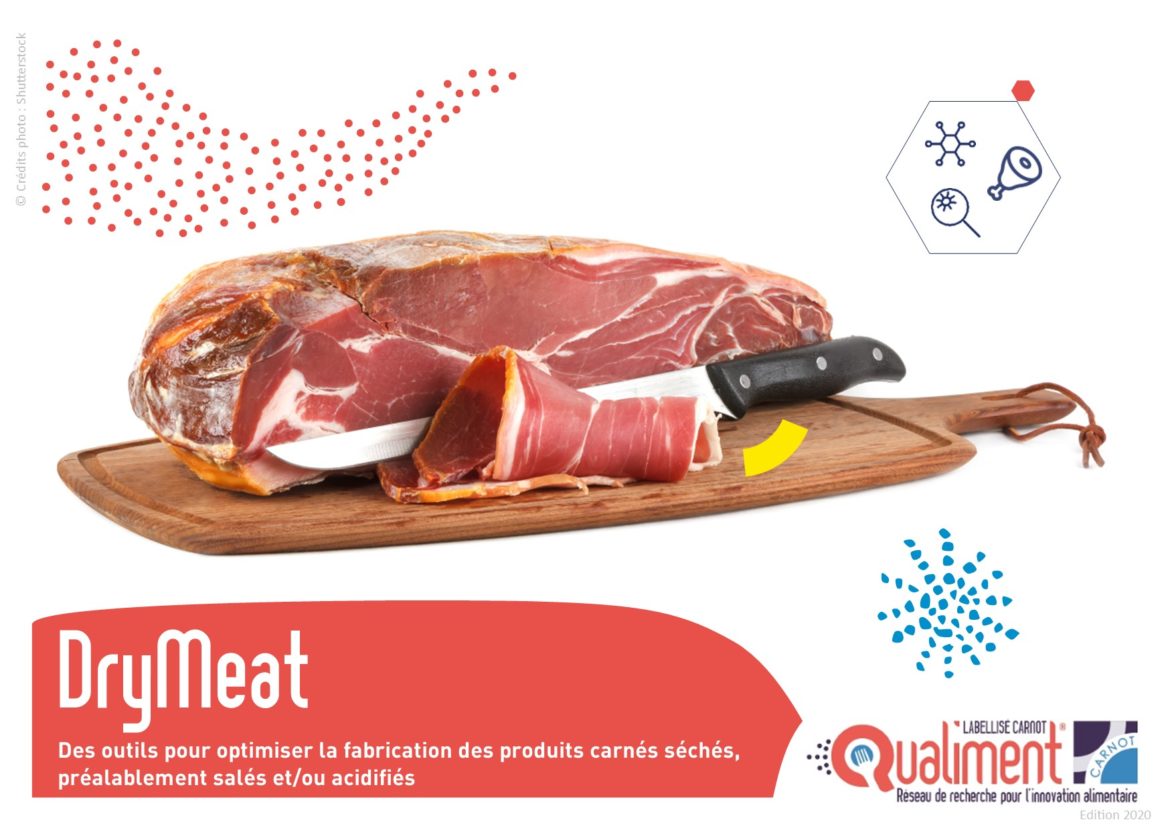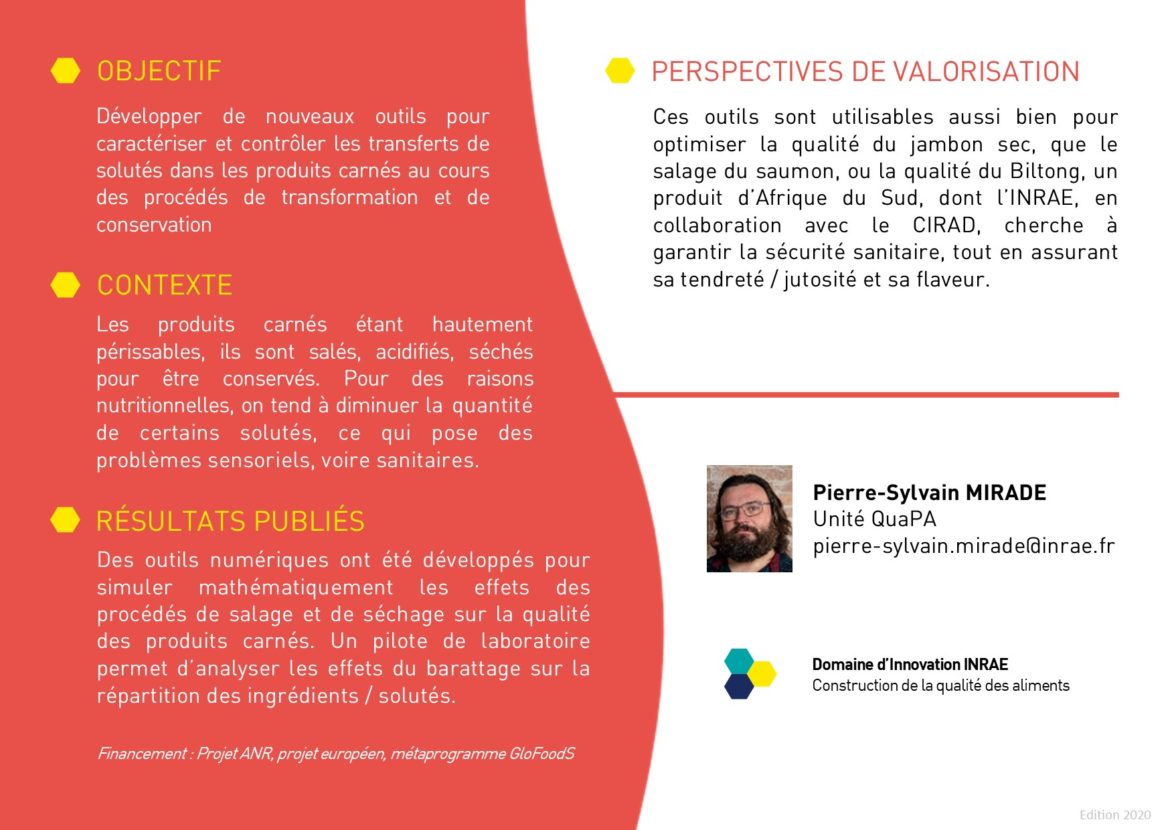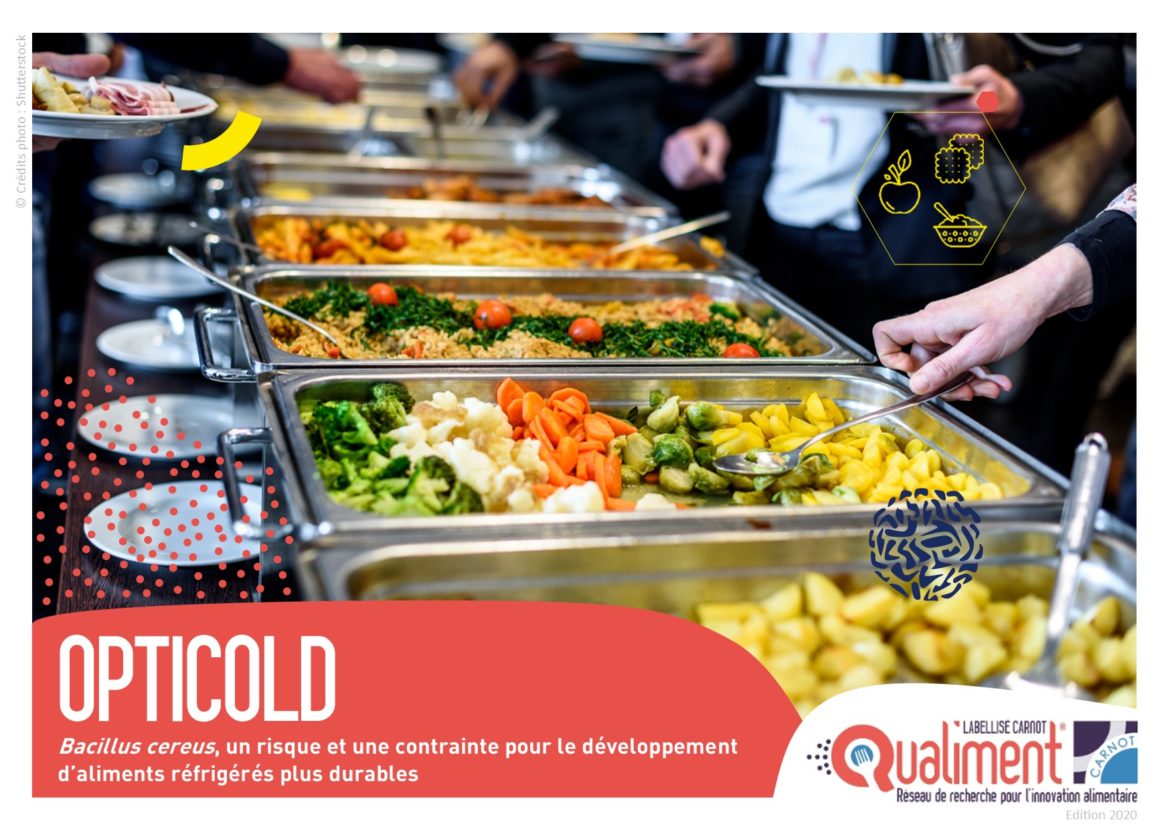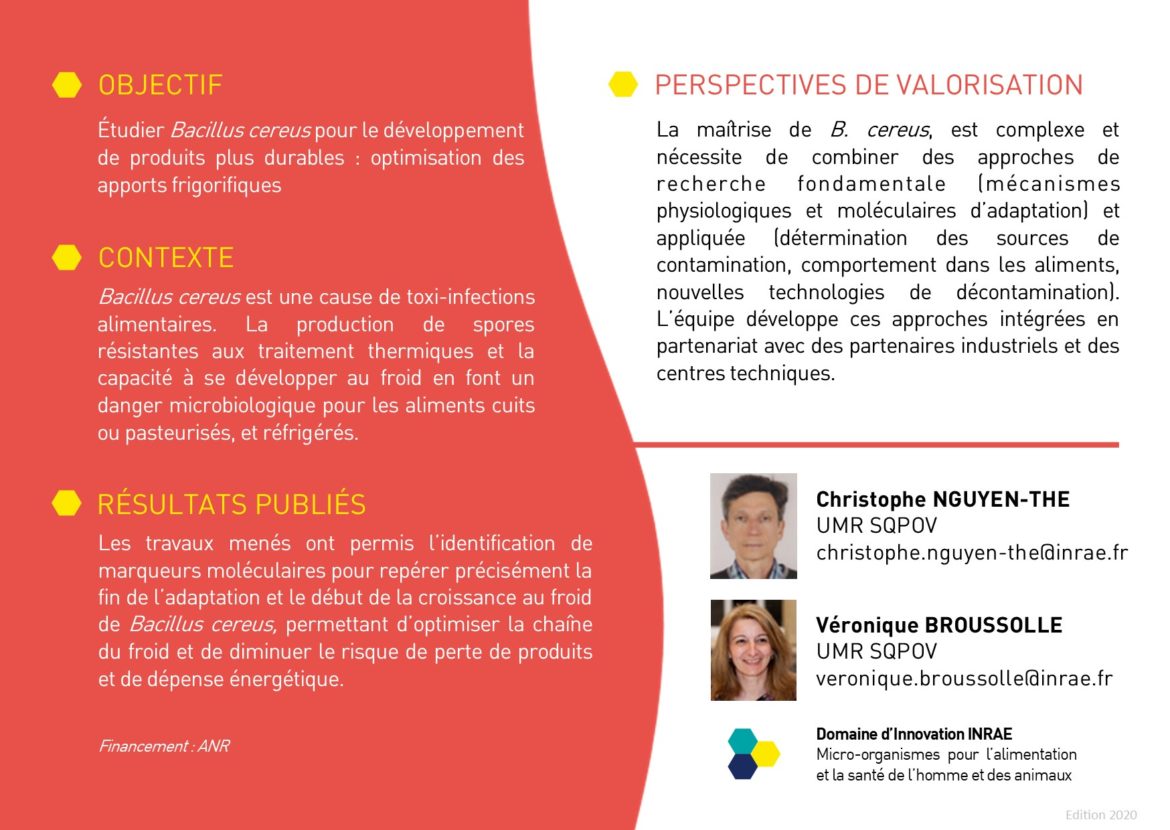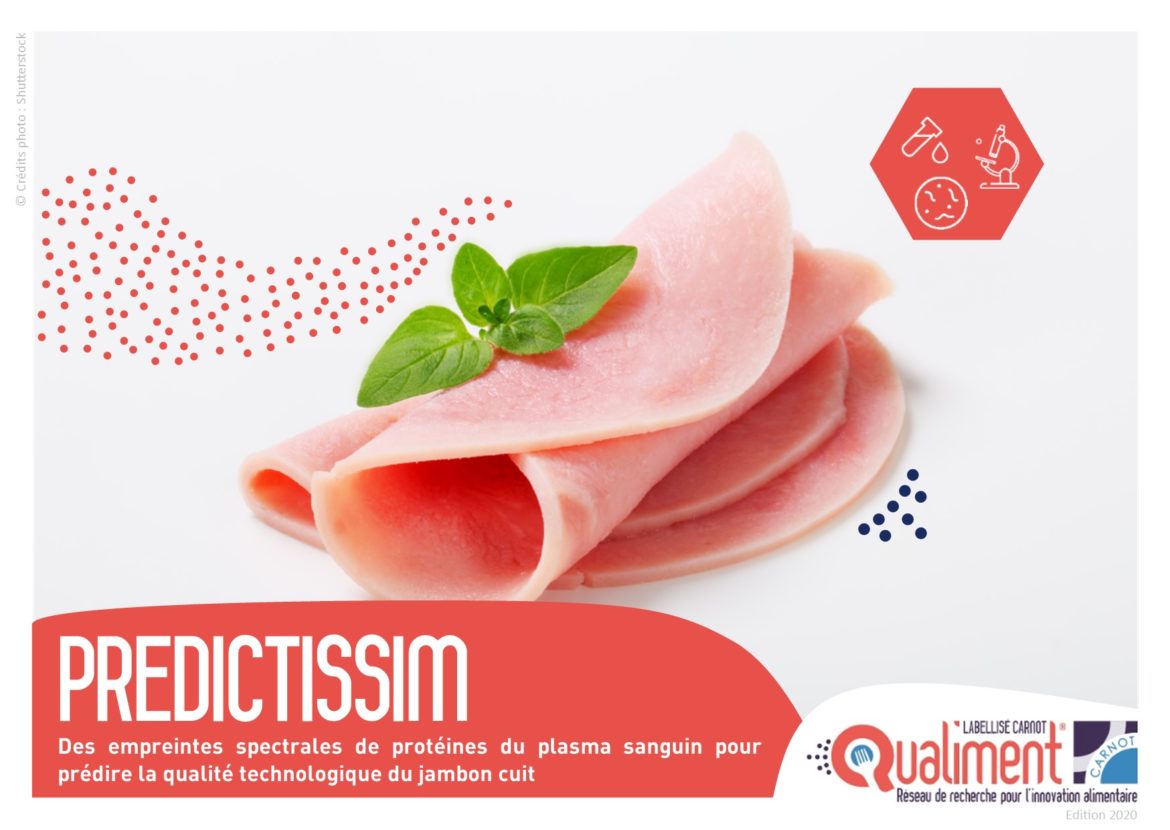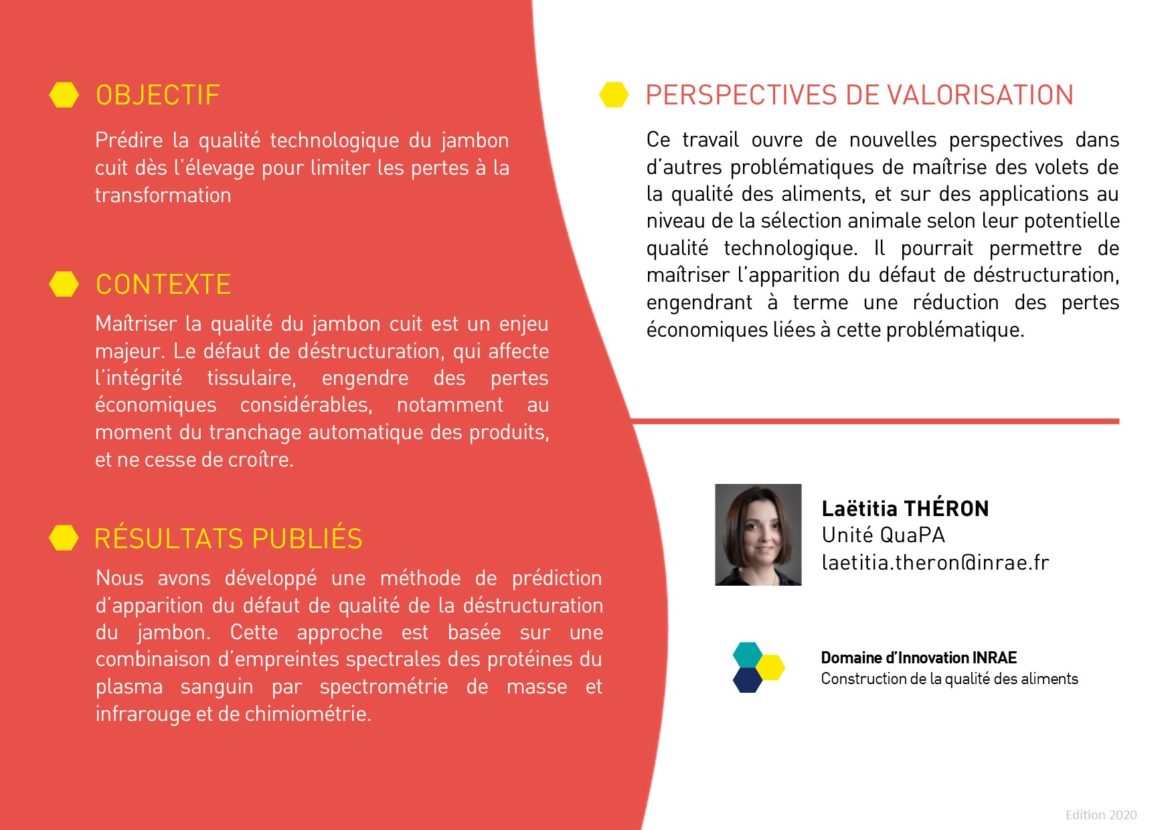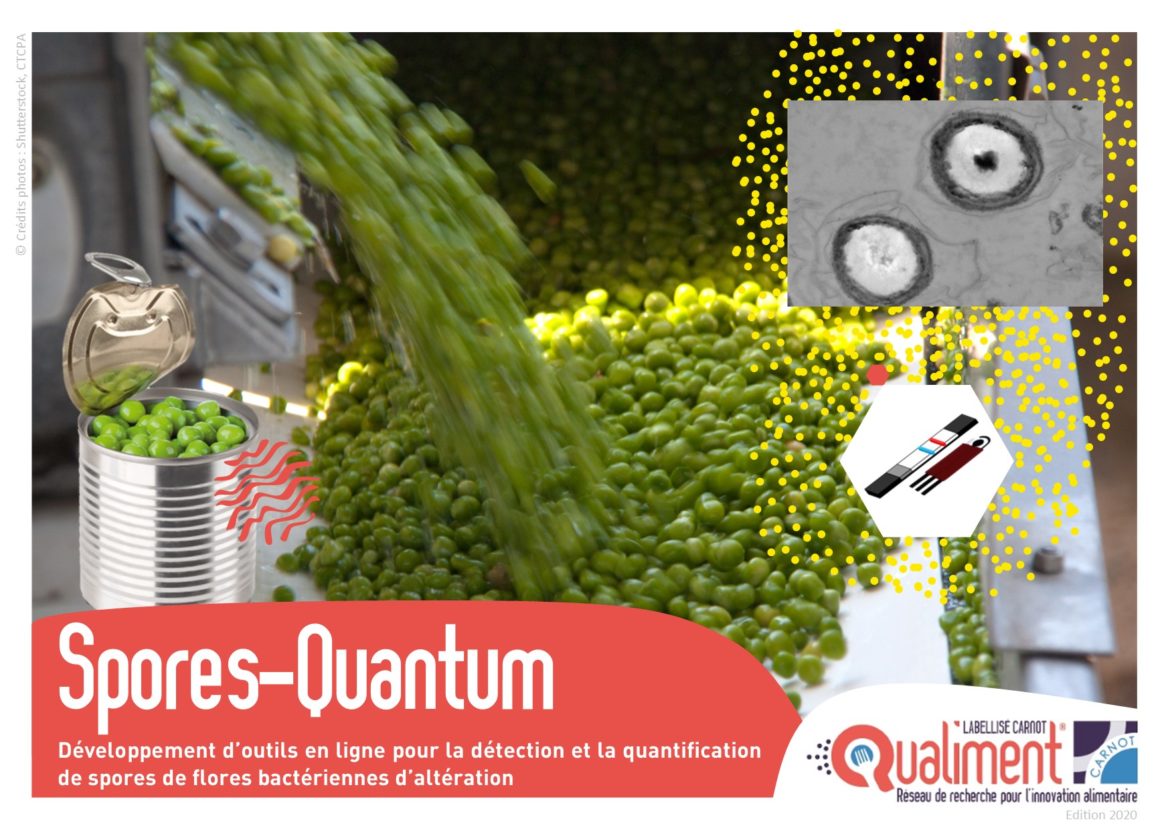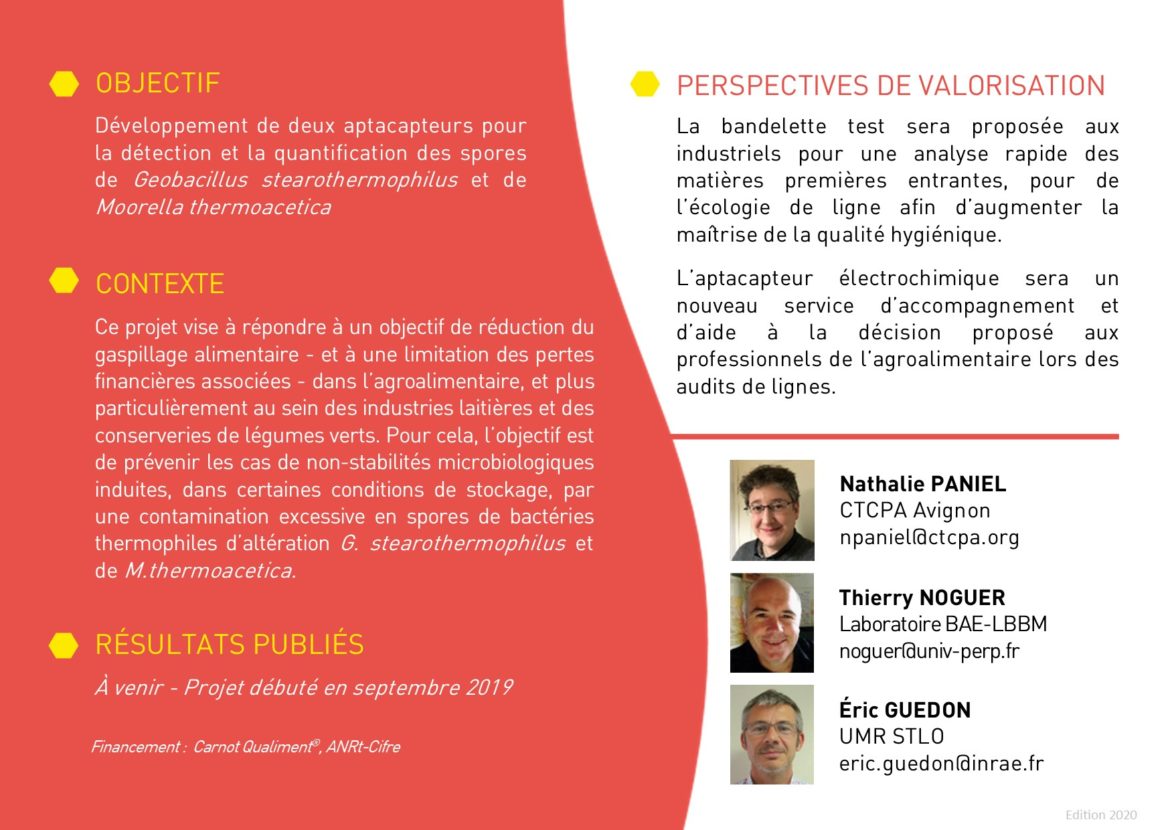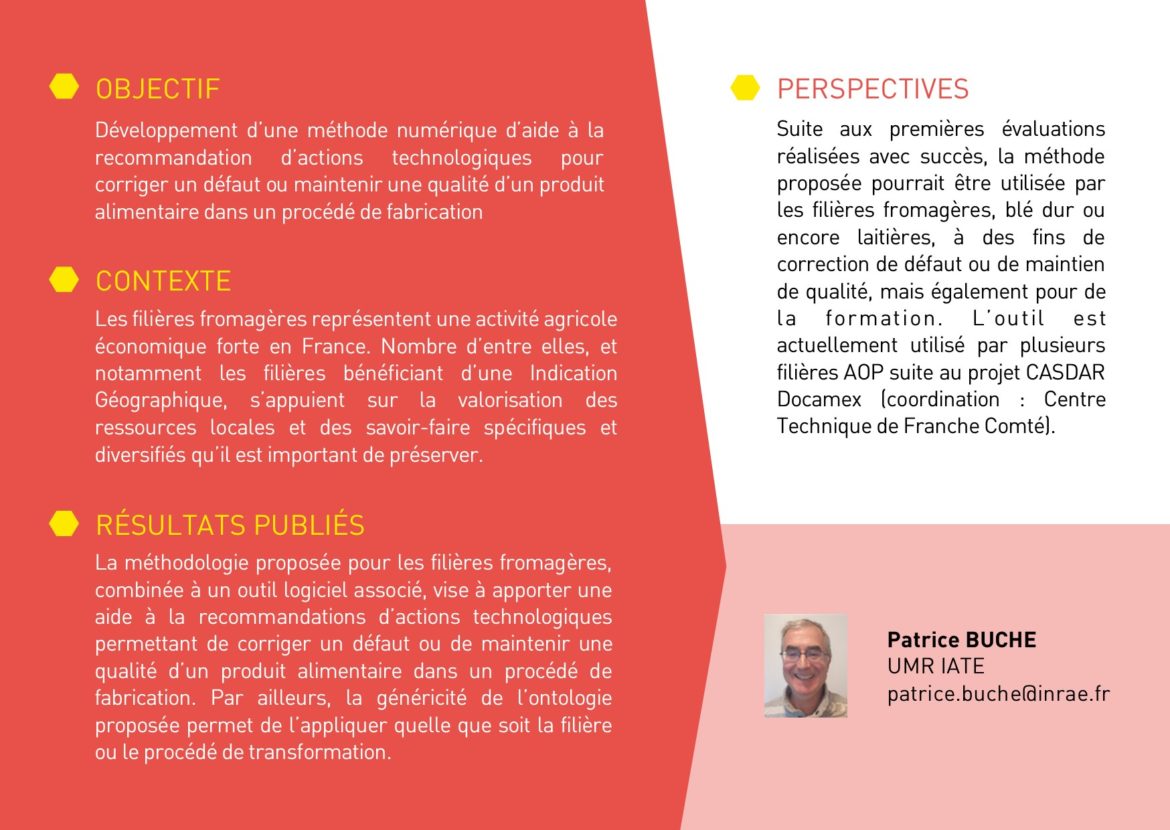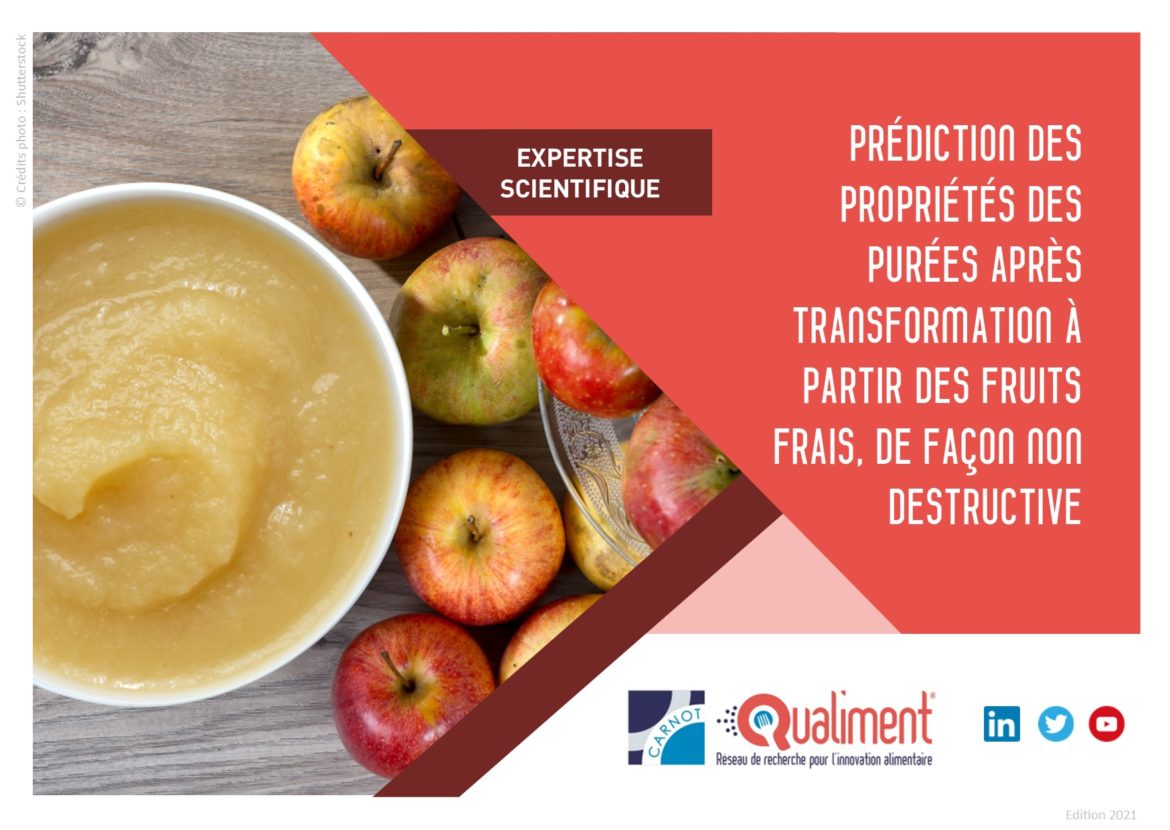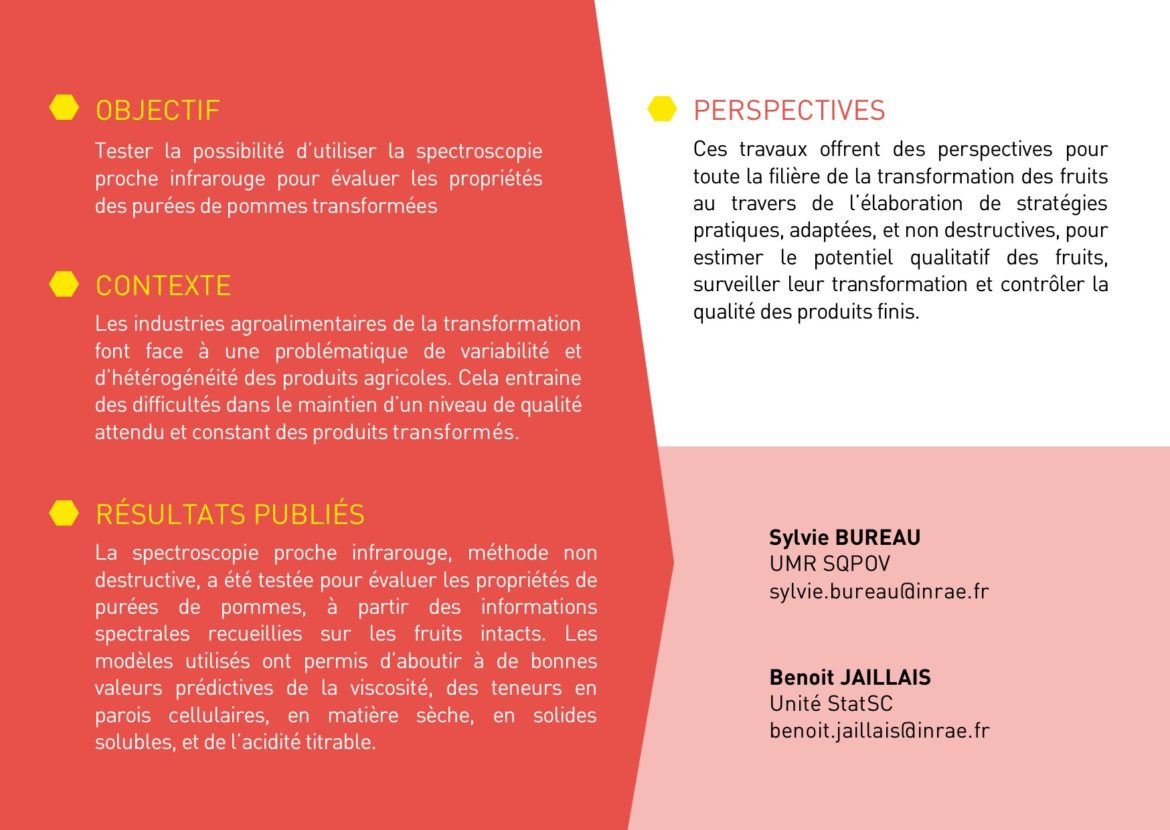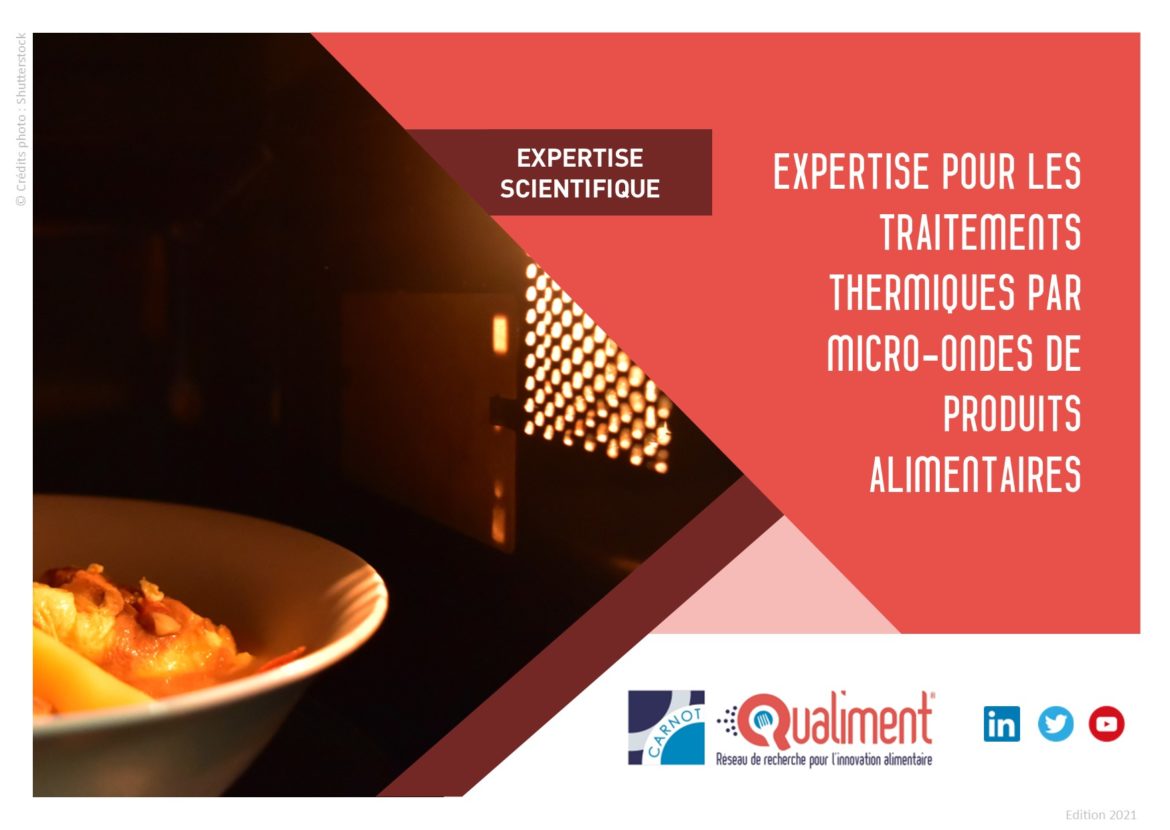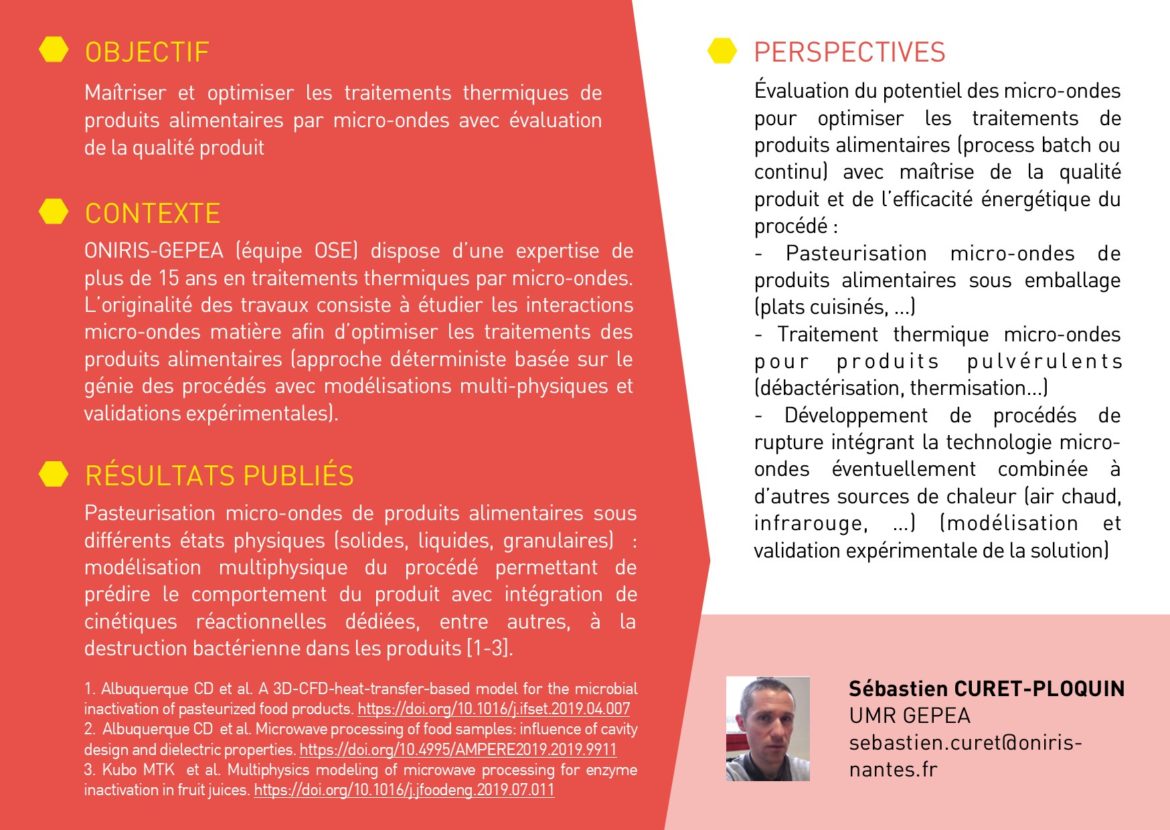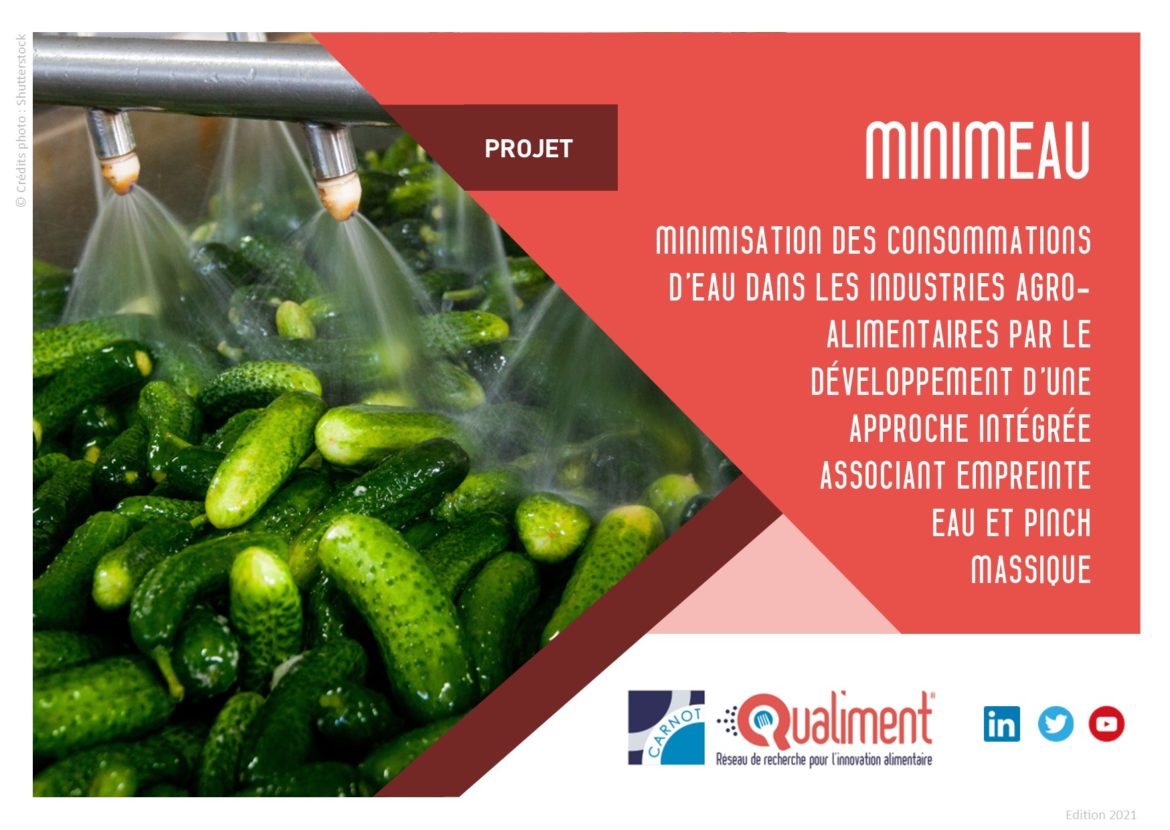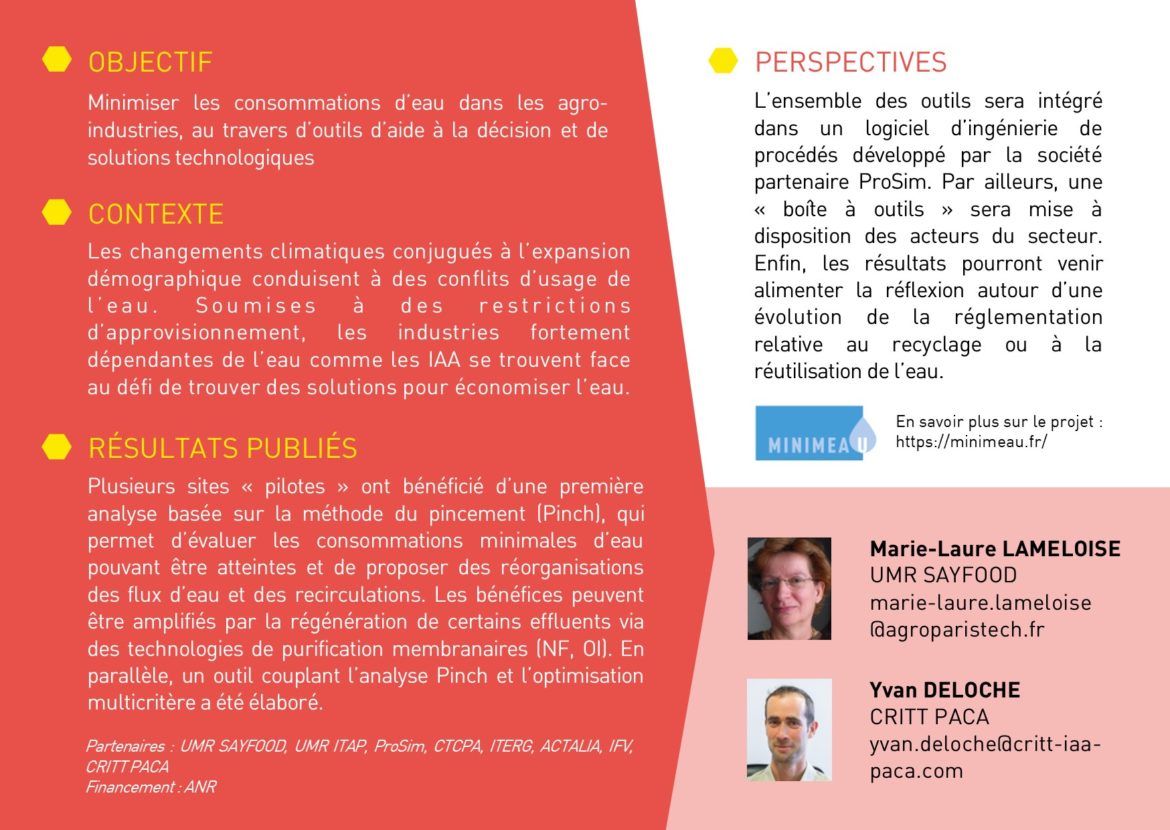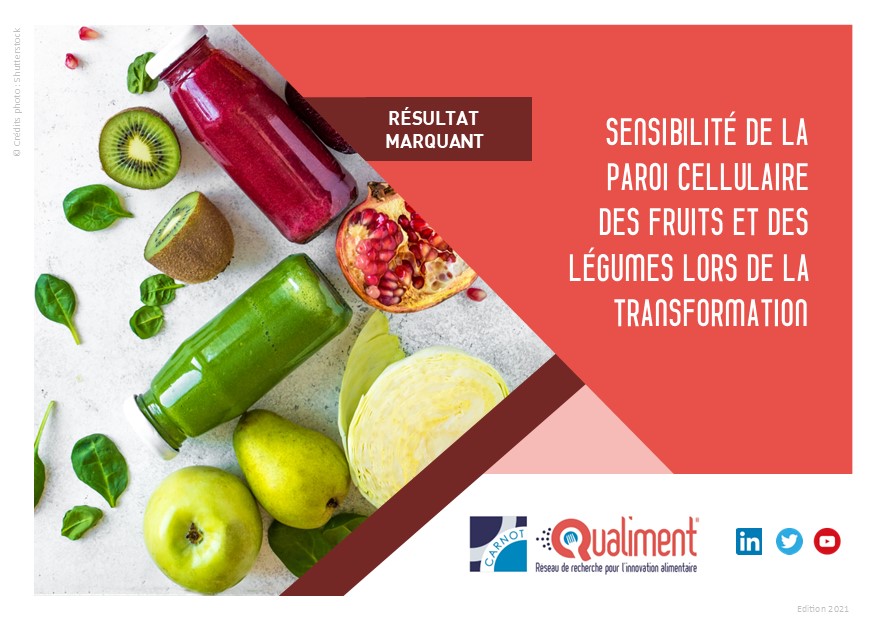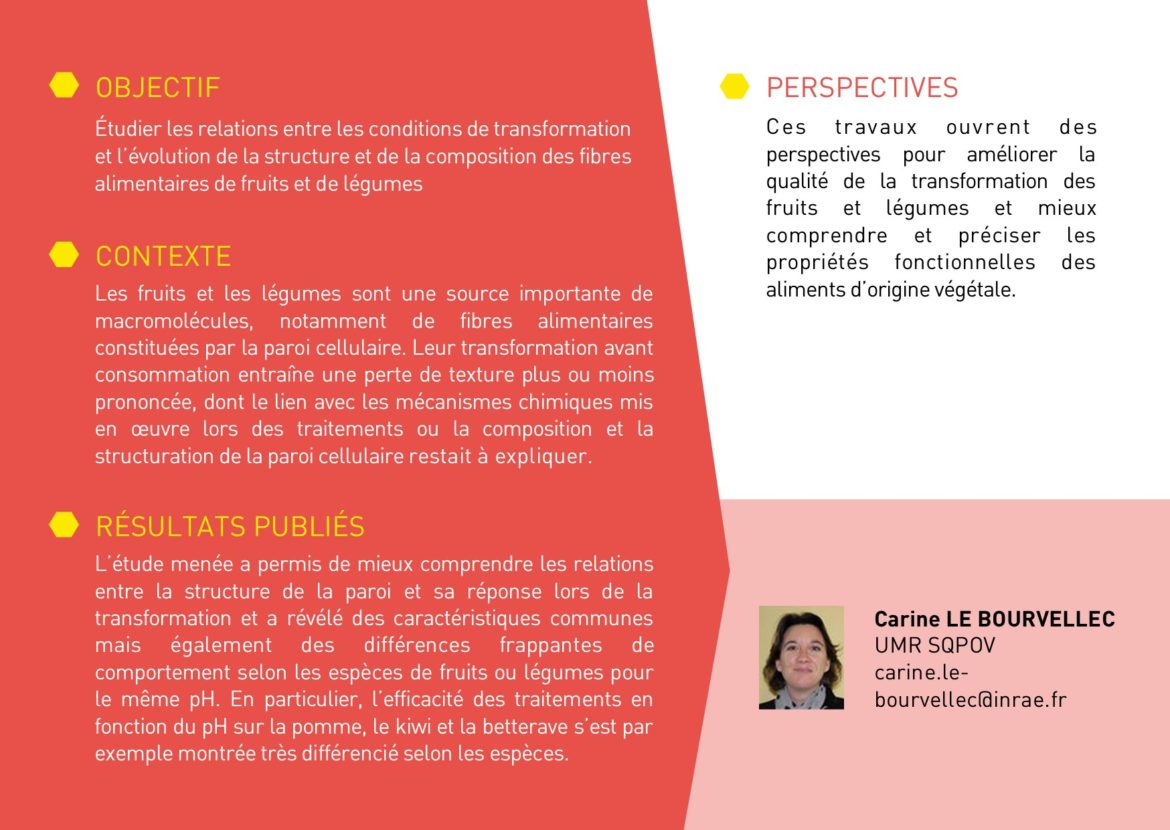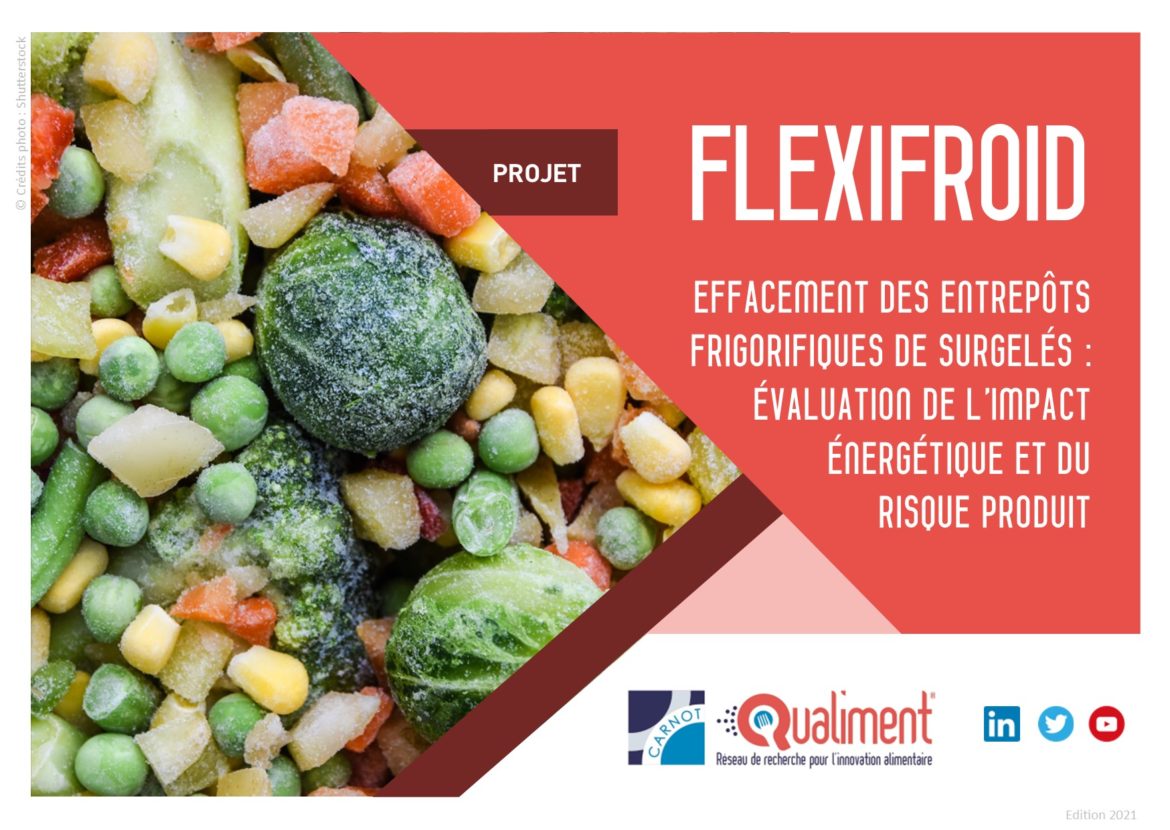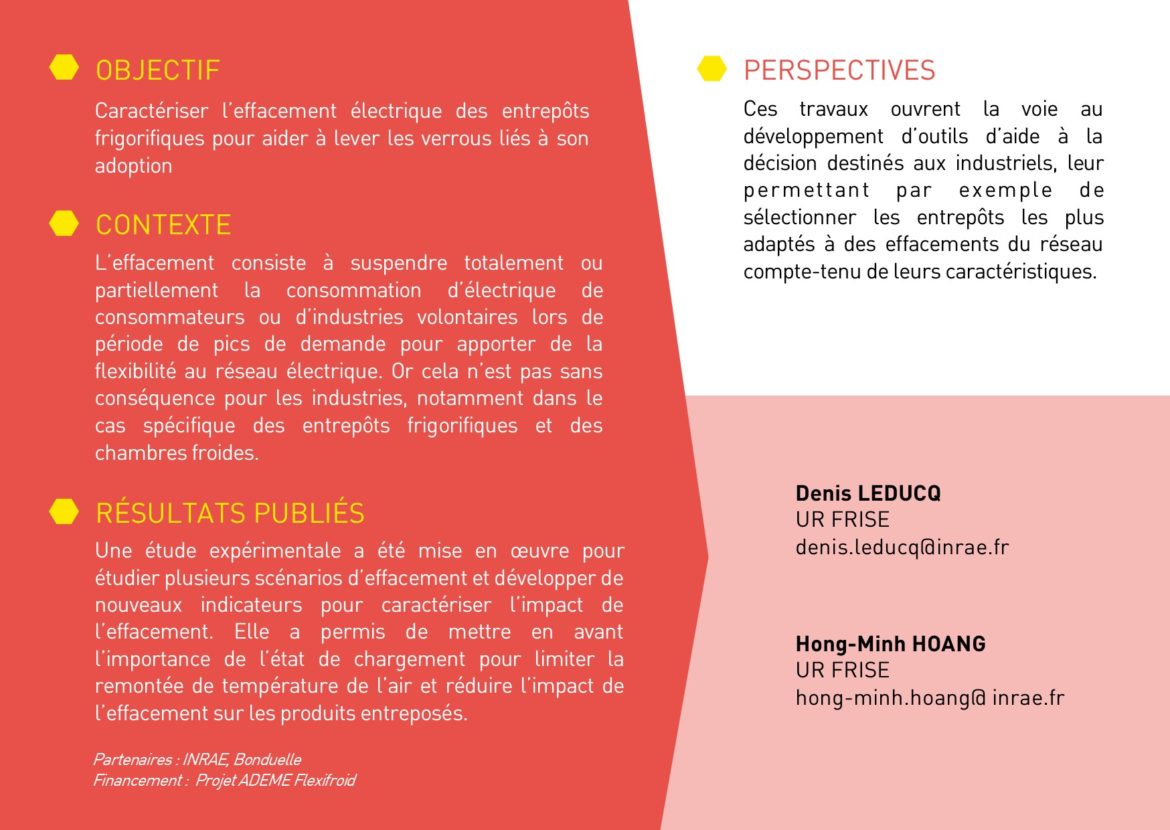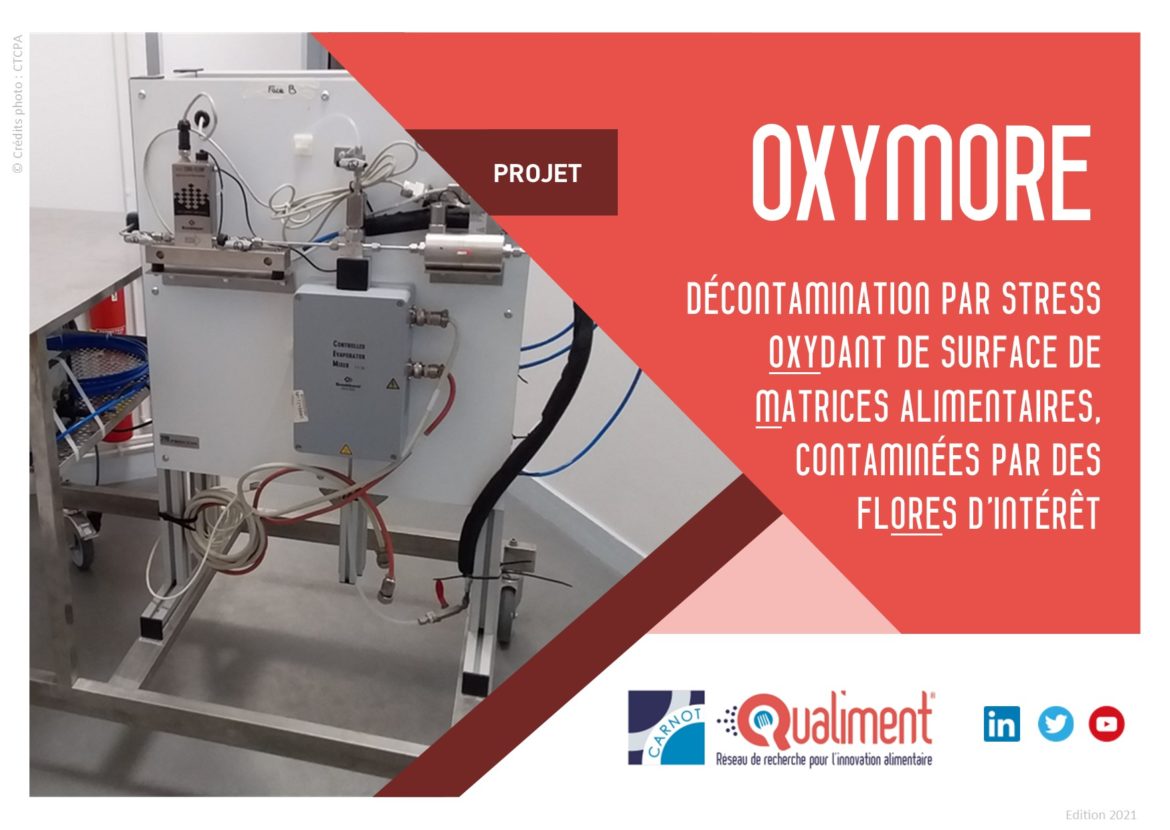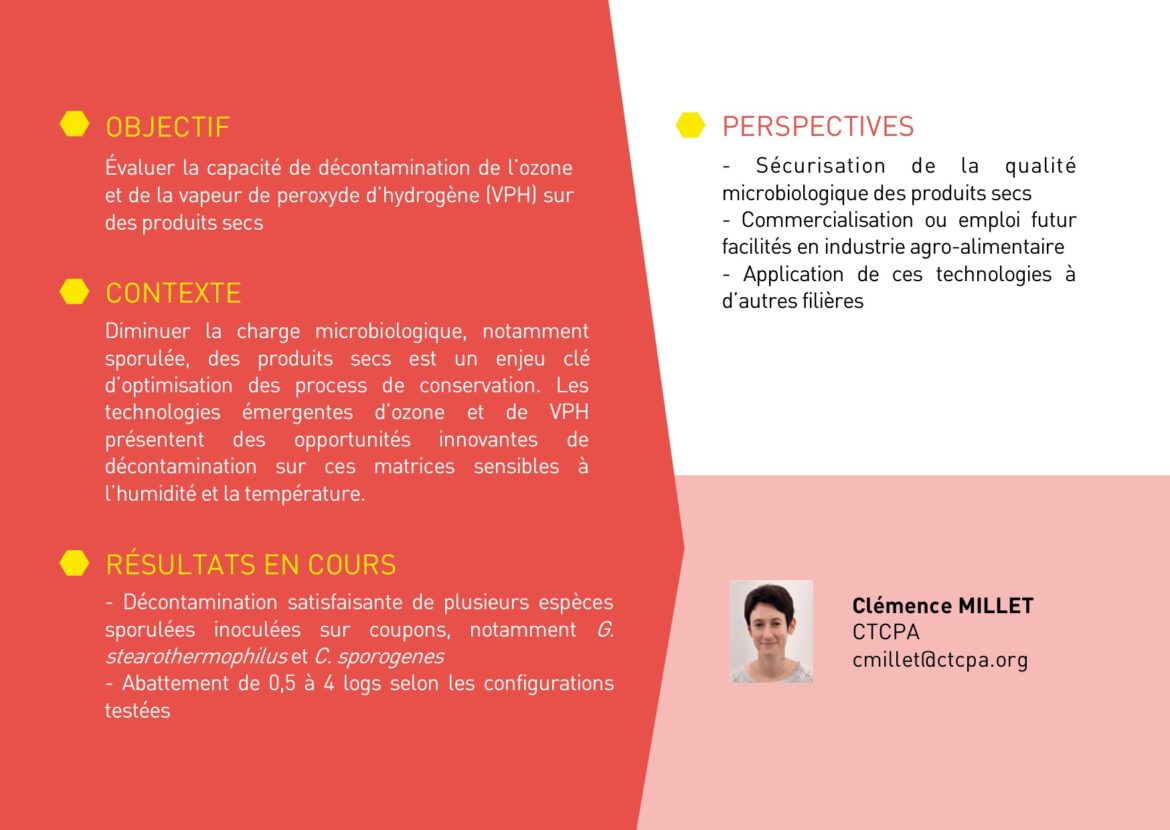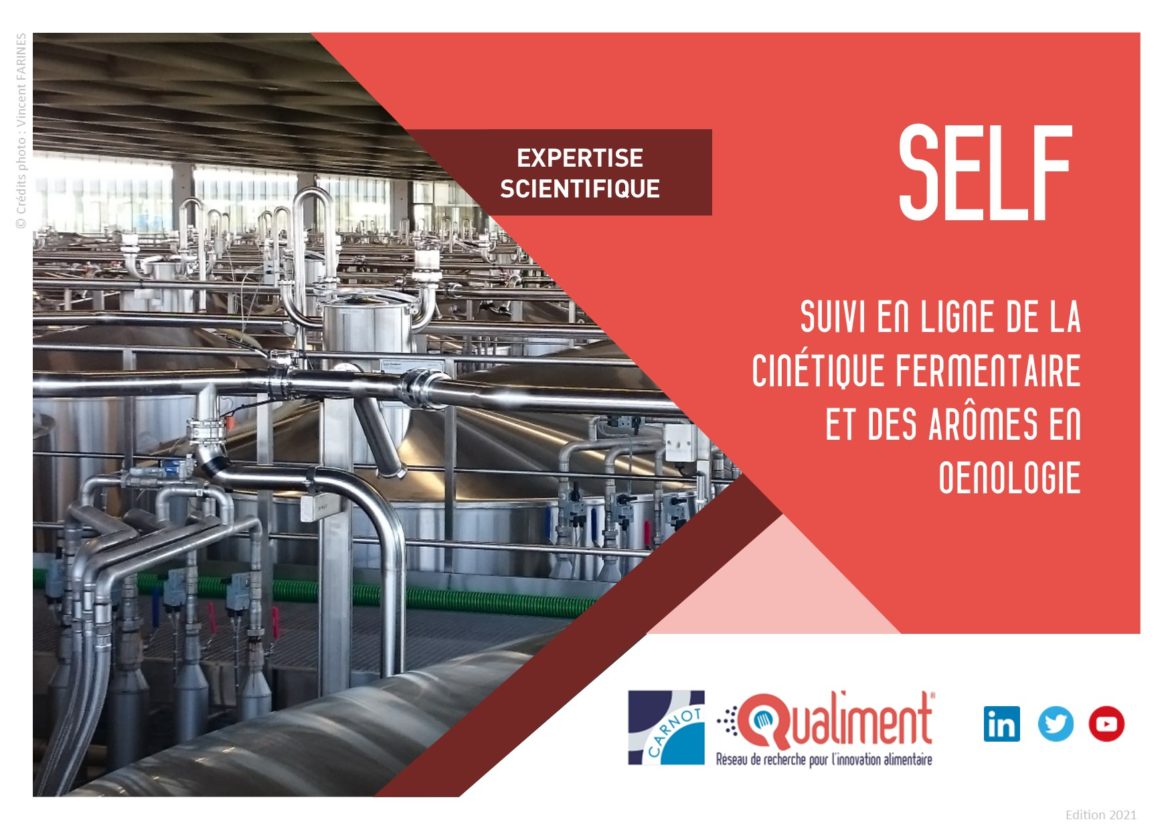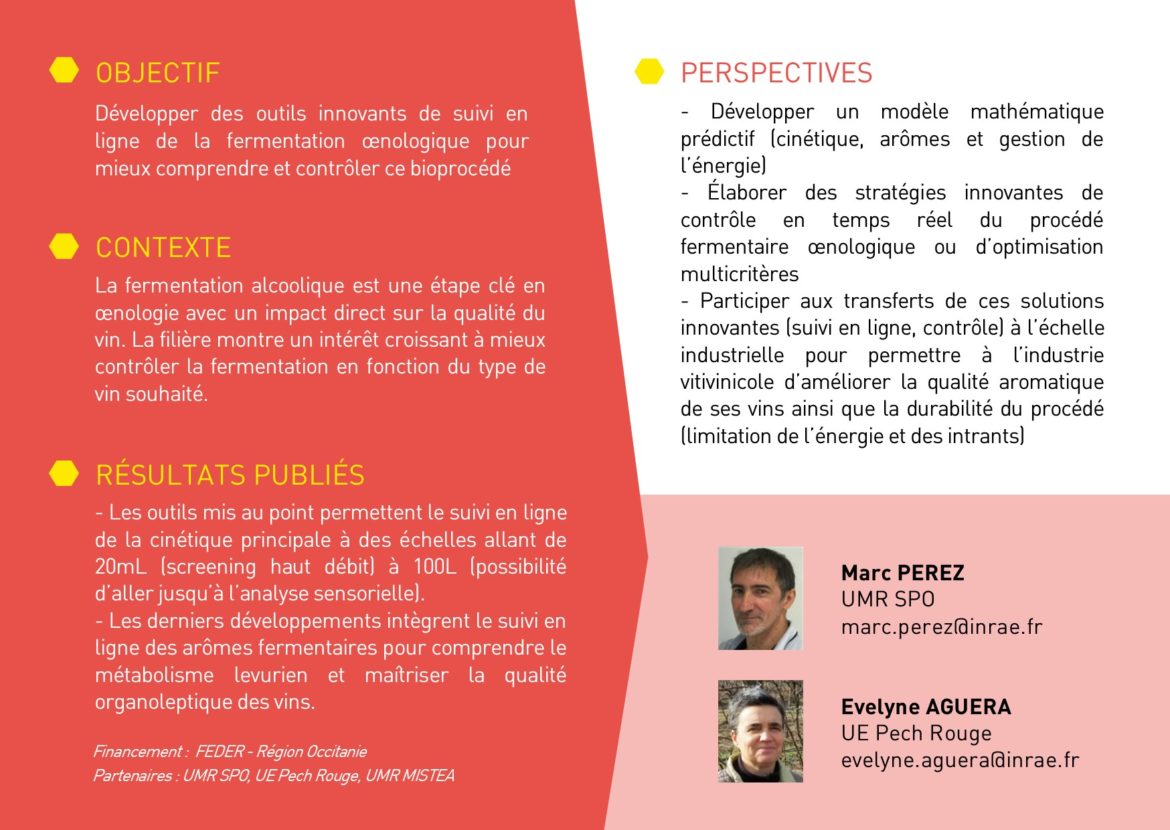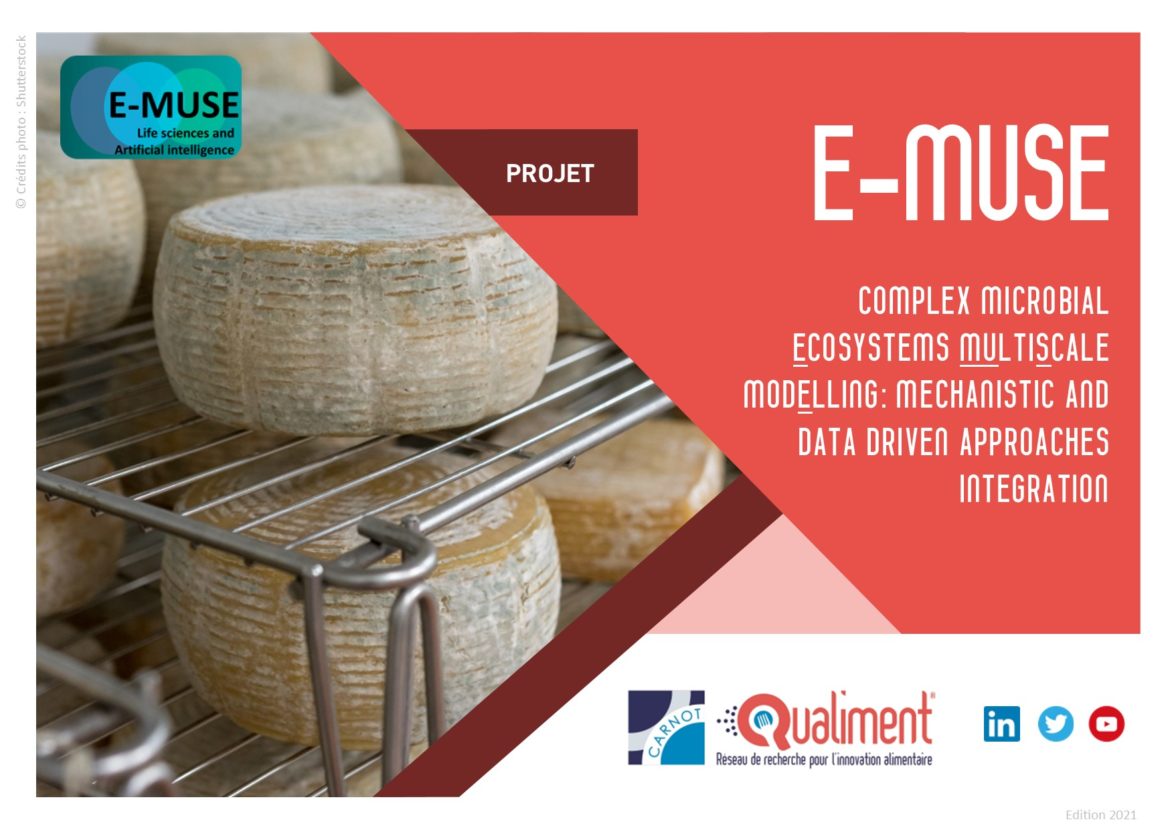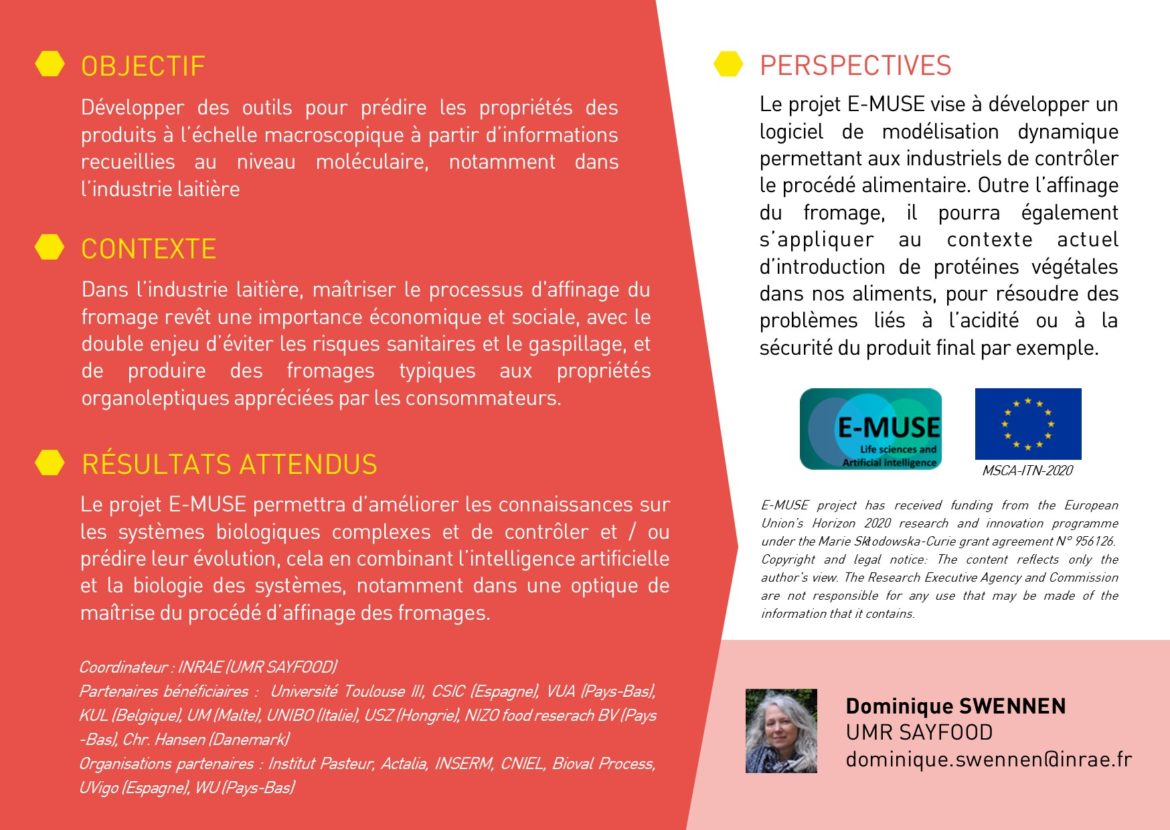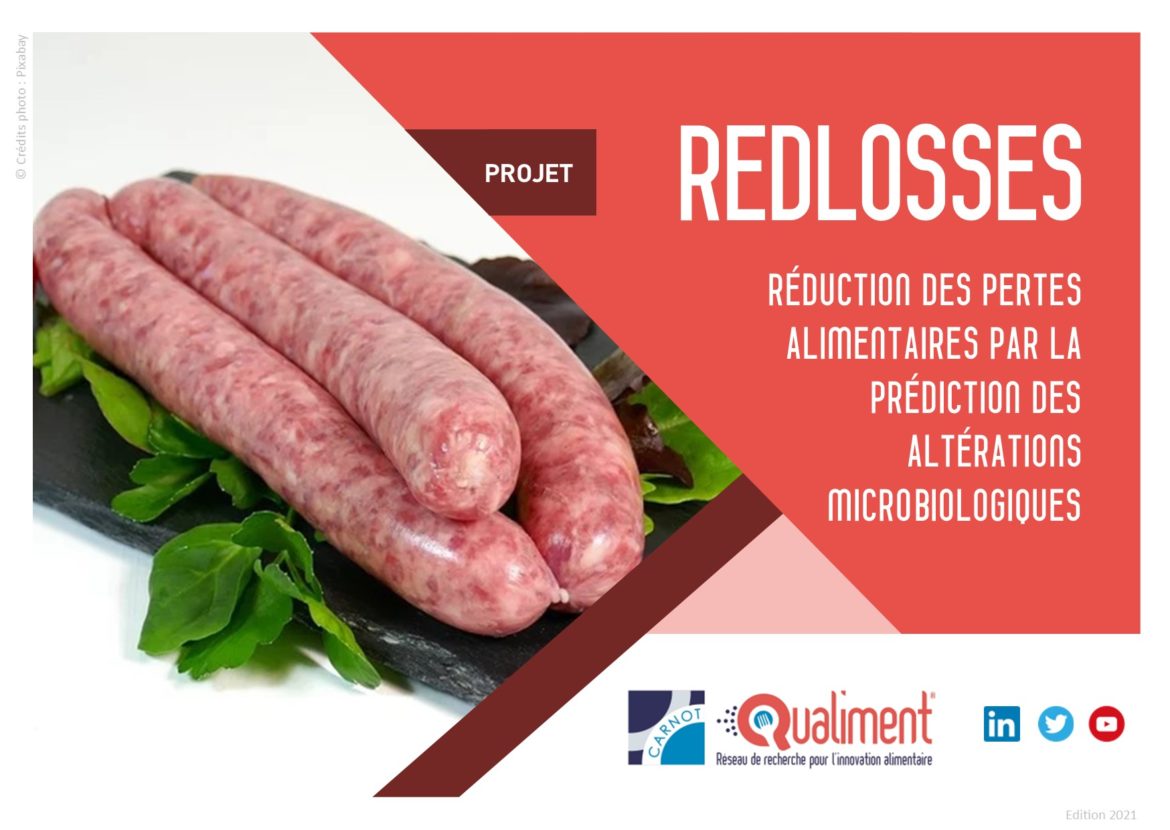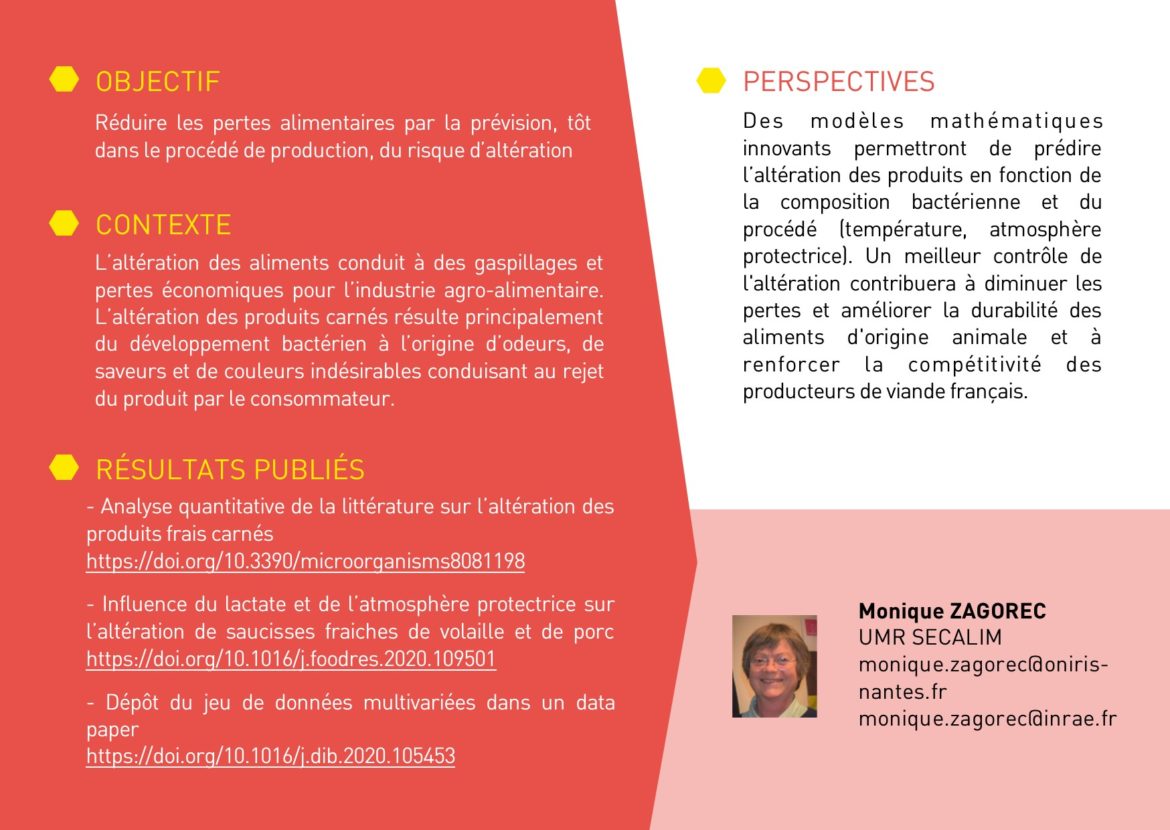Towards an intelligent agri-food plant
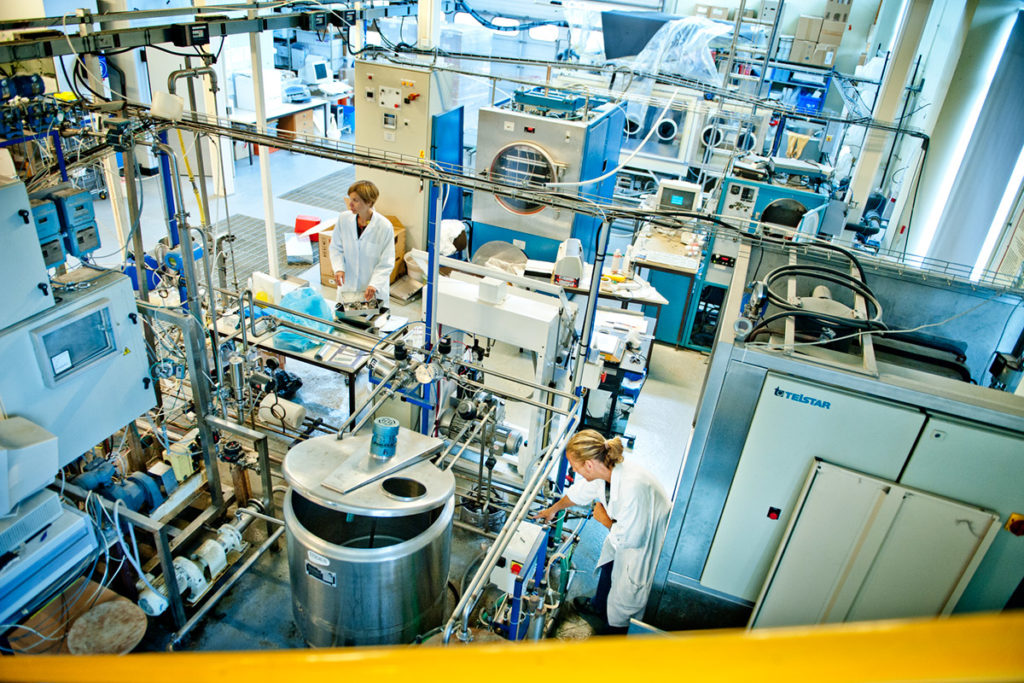
Context and challenges for business innovation
The development of digital technology and the evolution of agricultural production methods and consumer demands are tending to change the design of agri-food factories towards smaller-scale, flexible units that are controlled in real time.
This is reflected in the widespread use of sensors or the detection of indicators for on-line monitoring, by an improvement in the man-product or man-machine interface, by the multiplication of decision support tools, etc.
On the other hand, the evolution of agricultural production methods linked to consumer demands are leading to a reduction in the scale of food processing. The progressive evolution of practices towards agroecology and responsible agriculture, driven by consumer demand for new, more sustainable food products, implies the transformation of different (appearance of new species, new varieties, new cultivation methods) or more variable (co-existence of different production systems, increased impact of biotic and abiotic stresses...) or even heterogeneous batches of agricultural raw materials. This requires the eco-design of production chains capable of integrating smaller scales while remaining eco-efficient (reduced water or energy consumption, reduced losses and optimized use of co-products), and of course guaranteeing food safety.
Carnot's contributions to accompany them in their evolution
The expertise of the Qualiment® network is at the service of the development and the optimization of food transformation processes in order to integrate these evolutions, whether they are classical unit operations (cooking, bread-making, fermentations, etc.) or innovative ones (high pressure, microwave assisted drying, biopreservation, etc.). The Carnot teams can support companies in the organization and optimization of unit operations and processes, the implementation of tools for rapid qualification of raw materials, ingredients or food products, the design of relevant sensors, the identification of the consequences of processes in terms of sensory, functional or nutritional qualities of new food products.
Areas of expertise

Background to date
The eco-efficiency of food processing plants today meets a double challenge for the citizens and the economy of food industries. Nevertheless, the use of natural and/or fossil resources remains perfectible in many workshops, design and construction.
Challenges for business innovation
Agri-food companies have several levers of action at the level of their equipment and their production lines to optimize their eco-efficiency:
- Optimize design and operation methods by considering the technical, environmental and economic performance of the processes (production and cleaning) as well as the targeted use functions of the products (sanitary, sensory, nutritional and functional properties);
- Identify the right combination of unit operations in the organization of workshops to avoid wasting water, energy and raw materials;
- Integrate new stabilization, transformation or cleaning solutions that are more efficient and produce less waste, and intensify the processes;
- Avoiding raw material wastage and making the best use of co-products.
Carnot's contributions to accompany them in their evolution
The Carnot Qualiment® teams can help companies to perform life cycle analyses, identify breakthrough or incremental innovations, propose new heating, freezing, filtration, drying, disinfection and cleaning processes and qualify their impacts on the manufacturing line or on the finished product. They can also propose new solutions for the use of co-products.

Background to date
The adoption of innovative processes in the food industry is complex, especially if they lead to disruptive products or significantly modify the sensory properties in relation to consumer habits. However, there are currently new processes that can better enhance the freshness or preserve the naturalness of food products, in addition to innovations more focused on process efficiency.
Challenges for business innovation
In this context, the development of new processes that are more respectful of the food, more economical in terms of water/energy (high pressure - pascalisation, fermentation, ohmic heating, biopreservation, ultrasound, microwaves, pulsed electric fields, etc.), or better adapted to consumers' demands for naturalness and proximity is a major challenge.
Carnot's contributions to accompany them in their evolution
Carnot Qualiment® can propose new unit operations or innovative combinations of unit operations at different stages of food processing. The Carnot teams also include process engineering specialists able to advance with companies on the development and optimization of innovative processes as well as to qualify their sensory or nutritional impact.

Background to date
Today's demands on the agri-food industry require increased flexibility combined with seamless traceability. Indeed, the development of new agricultural production methods (organic farming, agro-ecological practices, but also increased biotic and abiotic stresses) lead to a greater variability of agricultural raw materials while consumers demand "natural" products, using few additives, personalized, local and traceable.
Challenges for business innovation
Digitalization and data digitization are tools that are becoming essential to organize production resources and make food plants more agile, efficient and competitive. This interconnection of data in real time requires data collection via relevant sensors, data structuring via modeling and simulation tools, and the development of interfaces for appropriate use by operators.
Carnot's contributions to accompany them in their evolution
The Carnot Qualiment® teams can bring their expertise of processes and food industries to identify relevant sensors for the qualification of functional qualities of products during processing, for the exploitation of data from on-line analyses, for the modelling and simulation of unit stages, up to the integration of expert knowledge.

Background to date
Two logics can be mobilized at the industrial level to meet the demand for "naturalness" of consumers, with, on the one hand, the identification of alternatives of natural origin for the reformulation of products (e.g. antioxidants or coloring agents extracted from plants), and, on the other hand, the analysis of product-process interactions to enhance the intrinsic functionalities of raw materials.
Challenges for business innovation
One of the key issues in responding to consumer demands is to identify "natural" solutions without confusing the consumer.
Carnot's contributions to accompany them in their evolution
The Carnot Qualiment® teams have the expertise to integrate unit operations or specific process conditions in order to obtain products with the same organoleptic or nutritional characteristics.
Researchers can also propose the development of "green" extraction processes for natural molecules with antioxidant, coloring, flavoring functionalities, etc.

Background to date
With the demand for proximity and the evolution of agriculture towards agro-ecological production, a greater variety and variability of raw materials is expected.
In terms of variety, longer agricultural rotations can lead to an offer of products that have been little studied for processing, with the emblematic example of legumes for human consumption, but also of certain pseudo-cereals (quinoa, buckwheat, etc.).
In terms of variability, changes in climatic conditions and cropping systems, such as the introduction of resistant varieties and the reduction of inputs, could lead to less homogeneous batches for the same agricultural product.
Challenges for business innovation
The challenge is twofold: to detect this variability and to adapt agri-food processes and unit operations to produce food products that meet consumer expectations. Detecting variability implies the implementation of rapid analysis methods and sensors to better monitor in real time the composition and physico-chemical characteristics of agricultural raw materials and intermediate products.
These new approaches require the implementation of databases and, above all, modeling to exploit them and predict the various changes in products during processing.
The demand for proximity and greater variability may lead to changes in scale, with the establishment of smaller and more flexible workshops.
Carnot's contributions to accompany them in their evolution
To meet these challenges, Carnot Qualiment® leverages its expertise in modeling and knowledge integration, and its knowledge of agri-food processes and unit operations, including innovative processes such as high pressure, ohmic heating, etc. Change of scale management and sensor design are also among its expertises.


